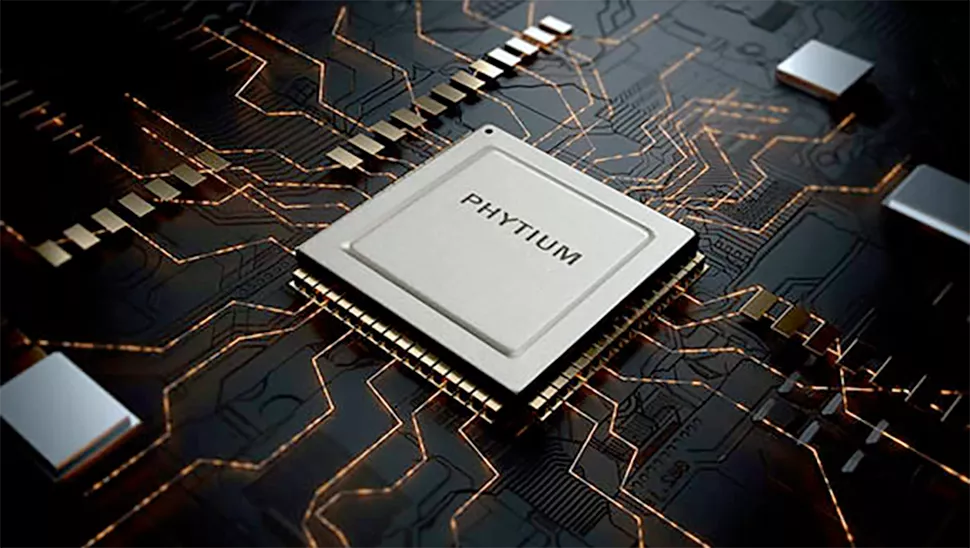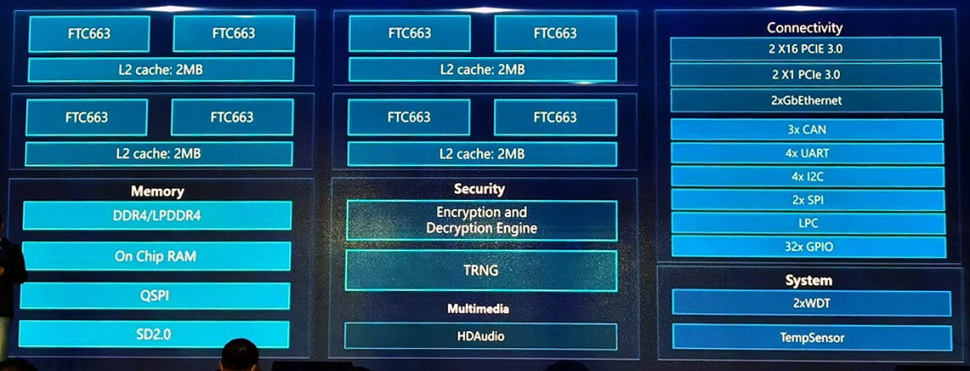
China continues to work on developing its own processors - the country needs this both to circumvent US sanctions against a number of companies from the Middle Kingdom, and to reduce dependence on external supplies.
Several companies are currently working in this direction. One of them is Phytium Technology, which recently introduced the D2000 8-core ARM processor for performance PCs. It can be used for both small PCs, in the Mac Mini form factor, and for regular desktops.
The new processor is a derivative of the FeiTeng-2000/4 introduced in summer 2020. True, the D2000 has twice as many cores - 8 instead of 4. Generally speaking, Phytium will use the same processor to create a new supercomputer. But, as mentioned above, the chip is suitable for custom systems.

The novelty has 8 FTC663 cores, compatible with ARMv8. The power consumption of the chip is 25 W when operating at frequencies of 2.30-2.60 GHz. Each core has four pipelines with out-of-order execution of instructions, a dynamic branch predictor, plus new INT and FP blocks. In order to speed up floating point workloads, the developers added support for Arm ASIMD instructions.
Each of the pair of cores has a shared 2MB L2 cache. All eight cores work with a 4MB L3 cache. The processor supports encryption algorithms SM2, SM3, SM4 and SM9, as well as its own PSPA 1.0 security platform.
As for I / O, the D2000 has a 128-bit DDR4-3200 / LPDDR4 memory interface, 34 PCIe 3.0 lines, two GbE ports, 32 GPIO lines and CAN, UART, I2C, SPI, and LPC interfaces. In addition, the chip has audio support but lacks integrated graphics.
Like its predecessor, the D2000 will receive a 1144-pin FCBGA package measuring 32 × 35 mm. The processor pins are compatible, so if necessary, the older model can be upgraded to the D2000.
Who is the manufacturer?
This is the most interesting, because, as already mentioned, this is a completely Chinese development. Most likely, the chips were not produced by TSMC. It was she who produced the previous model, according to the 16-nm process technology. The new processor was released using a 14nm process technology.
Based on this, it can be assumed that the manufacturer is the Chinese Semiconductor Manufacturing International Corp. (SMIC) or United Microelectronics Corp. from Taiwan. It is unlikely, but still possible that the chip was supplied by GlobalFoundries or Samsung Foundry.
But it is definitely not TSMC, which, by the way, will supply the 64-core S2500 processor for the same company. The S2500 is also made using a 16nm process technology and is designed to work in DC and supercomputer equipment. Chip surface area 132 mm 2(Apple's A10 has 125mm 2 ).
By the way, Phytium is doing very well. Last year, the company's sales grew 7.5 times .

This is due to the working program of import substitution. Now more and more companies and government organizations in the Middle Kingdom are switching to domestic software and hardware. In 2020, the company sold 1.5 million chips against 200,000 in 2019. 80% of the supplies went to government customers.
The company is likely to sell even more processors this year than last. The first systems with the new chip will appear early this year.
